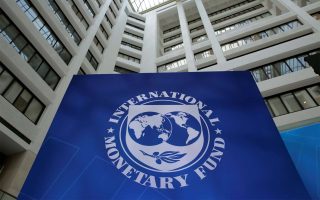On Wednesday, March 25, 2020, The International Monetary Fund (IMF) in a blog posting tagged “In It Together: Protecting the Health of Africa’s People and their Economies,” provided regional analysis on the effects of the COVID-19 in sub-Saharan Africa.
The IMF revealed that coronavirus in the region could be devastating and will have substantial economic impact or cost on sub-Saharan Africa in three major ways. With several crucial measures in place such as closed borders, limited public gatherings, lockdowns amongst others, it will have a direct cost on local economies. These disruptions to people’s daily lives will result in less paid work and income, likewise less travel, trade, and tourism due to the border closure.
Secondly, the pandemic in sub-Saharan Africa will lead to global hardships as other major economies will see global demand fall. This will disrupt production and world supply chains, tighter global financial conditions will limit access to finance and countries in this region will experience delays in getting investment or development projects.
Additionally, there will be a sharp decline in commodity prices which will hit oil exporters hard. The IMF disclosed that “the price of oil has tumbled to levels not seen in decades, we estimate that each 10 percent decline in oil prices will, on average, lower growth in oil exporters by 0.6 percent and increase overall fiscal deficits by 0.8 percent of GDP.”
With these ineluctable economic impacts on sub-Saharan Africa, the IMF asserted that “across the region, growth will be hit hard. Precisely how hard it is still difficult to say. But it is clear that our growth forecast in April’s regional outlook will be significantly lower.” Nevertheless, fiscal policy will have to play a leading role in mitigating the shock. There should be increased fiscal spending on public health likewise cash transfers to individuals and households under strain. Easing monetary policy can also complement fiscal efforts, with financial measures like credit and liquidity for businesses, central bank liquidity provision or temporary credit guarantees to minimize the impact of the virus on the economy.
More importantly, governments should consider targeted and temporary support for hard-hit sectors such as tourism, production, and trade. For instance with temporary tax relief through specific reductions or delays in paying taxes, it could help address cash flow shortfalls for affected businesses. Thus, by utilizing fiscal and monetary policies coupled with short-term targeted support by the governments of the region, sub-Saharan Africa can recuperate after the COVID-19 pandemic dies out.
The IMF also disclosed that they have received requests for emergency financing from over 20 nations in the region and are expecting at least 10 more soon. The International Monetary Fund, however, stated that “it is making $50 billion available via rapid-disbursing emergency facilities, including $10 billion on highly concessional terms for low‑income countries.” The IMF has called on other international lenders such as the World Bank, the African Development Bank, and the African Union to respond to this crisis by facilitating emergency loans to countries.








